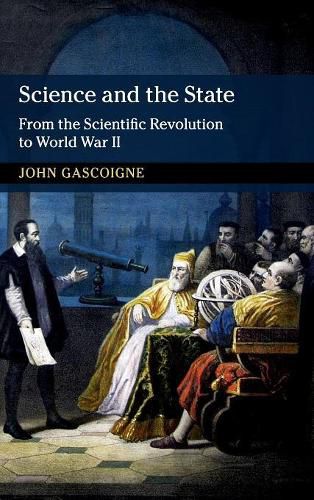Readings Newsletter
Become a Readings Member to make your shopping experience even easier.
Sign in or sign up for free!
You’re not far away from qualifying for FREE standard shipping within Australia
You’ve qualified for FREE standard shipping within Australia
The cart is loading…






Was it coincidence that the modern state and modern science arose at the same time? This overview of the relations of science and state from the Scientific Revolution to World War II explores this issue, synthesising a range of approaches from history and political theory. John Gascoigne argues the case for an ongoing mutual dependence of the state and science in ways which have promoted the consolidation of both. Drawing on a wide body of scholarship, he shows how the changing functions of the state have brought a wider engagement with science, while the possibilities that science make available have increased the authority of the state along with its prowess in war. At the end of World War II, the alliance between science and state was securely established and, Gascoigne argues, is still firmly embodied in the post-war world.
$9.00 standard shipping within Australia
FREE standard shipping within Australia for orders over $100.00
Express & International shipping calculated at checkout
Was it coincidence that the modern state and modern science arose at the same time? This overview of the relations of science and state from the Scientific Revolution to World War II explores this issue, synthesising a range of approaches from history and political theory. John Gascoigne argues the case for an ongoing mutual dependence of the state and science in ways which have promoted the consolidation of both. Drawing on a wide body of scholarship, he shows how the changing functions of the state have brought a wider engagement with science, while the possibilities that science make available have increased the authority of the state along with its prowess in war. At the end of World War II, the alliance between science and state was securely established and, Gascoigne argues, is still firmly embodied in the post-war world.